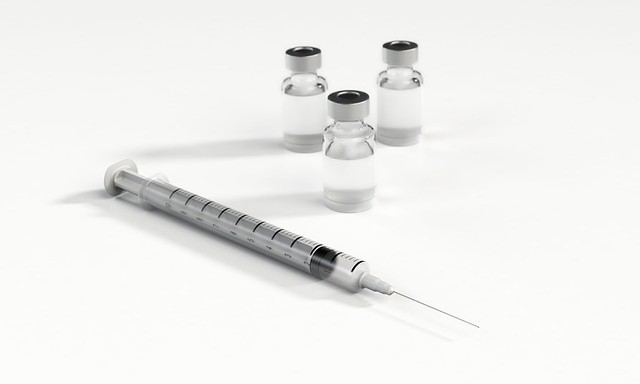
One of the first recipients of the COVID-19 Vaccine is a healthcare worker in Alaska who experienced some side-effects. It was reported by an official and will be checked further by doctors.
The first COVID-19 therapies have been administered to health professionals on the frontlines.
One of these health workers in Alaska had an allergic reaction to the Pfizer vaccine last Tuesday. The female healthcare professional reported feeling flushed within 10 minutes of getting injected. She told doctors that breathing was coming short, and an increased heart rate said doctors last Wednesday, reported CNN.
It is one of the first reactions like an allergy after getting the treatment in the US. Health officials expected allergic reactions. They added this has been taken into account and are ready to treat those with it, mentioned Fox News.
According to Alaska's Chief Medical Officer Dr. Anne Zink, the side effect was expected after anaphylaxis was reported in the UK after the Pfizer-BioNTech Covid-19 vaccine got injected. She added all sites where the coronavirus cure is to be administered. They are medications that were available to those with an allergic reaction.
The anonymous worker was part of the staff that were vaccinated at the Bartlett Regional Hospital in Juneau. One of the first recipients and institutions are given priority since they combated the virus last Tuesday.
Dr. Lindy Jones at the Bartlett Memorial Hospital said the health worker was in the monitoring area when shots were received. A Benadryl was given to the recipient right after she experienced shortened breaths and sent to the emergency room for checking.
Also read: Coronavirus Oxford Vaccine Effective in Monkeys to be Mass-Produced in India
She remarked, seeing the patient who was breathing harder than normal. Another observation is her faster heartbeat with a rash on her torso and face.
Adding that she was looking for a possible anaphylactic reaction, which needed a standard treatment with a shot of intramuscular epinephrine, she responded by stabilizing the patient's condition. Anti-allergy medicines like anti-histamines were given.
After giving the medicines, her elevated heart rate was breathing fast, which was an allergic side effect given an extra dose of epinephrine and steroids. The use of steroids is normal for severe anaphylactic reactions.
Dr. Jones administers medicine to help the patient. The female worker was not identified to keep her privacy secure. The vaccine recipient had no previous allergies to vaccines. Recovery from the severe allergic reaction took one night in the intensive care unit.
Despite the vaccine injection experience, she felt good and what it can do for her, said Jones.
Dr. Jay Butler of the US Centers for Disease Control and Prevention remarked that everything turned sufficient for this instance.
What happened to the recipient last night was reported to the CDC database. The State of Alaska Department of Health and Social Services (DHSS) coordinates with the CDC to get guidance and support in a statement released.
Dr. Paul Offit, a member of the US Food and Drug Administration's Vaccines, mentioned that this allergic reaction would be looked out for when giving the Vaccine.
The CDC has given an advisory that this COVID-19 Vaccine might have an allergic reaction, and it should be avoided if anyone is allergic to injected medicines.
Related article: Moderna COVID-19 Vaccines to Start by Friday, FDA Emergency Approved
© 2025 HNGN, All rights reserved. Do not reproduce without permission.








